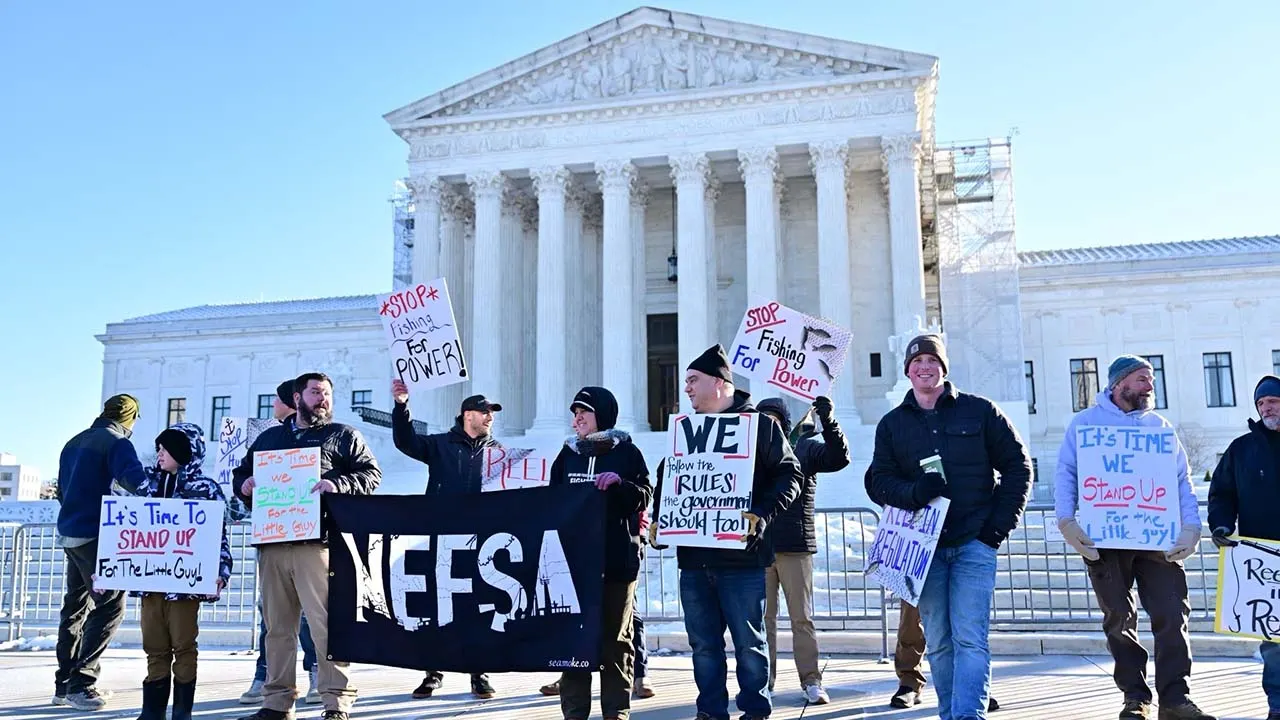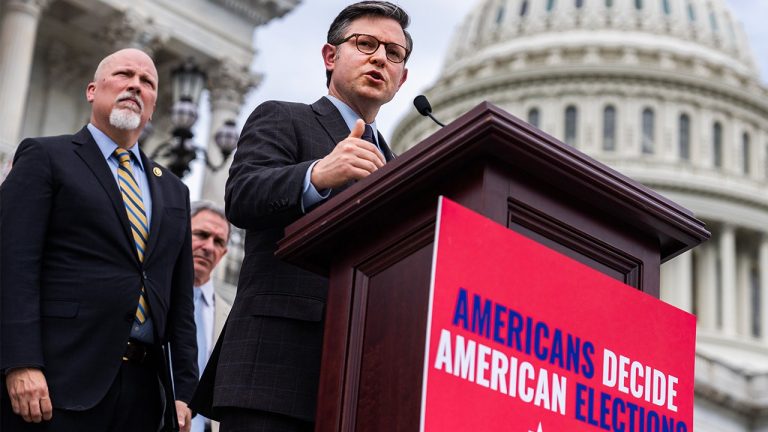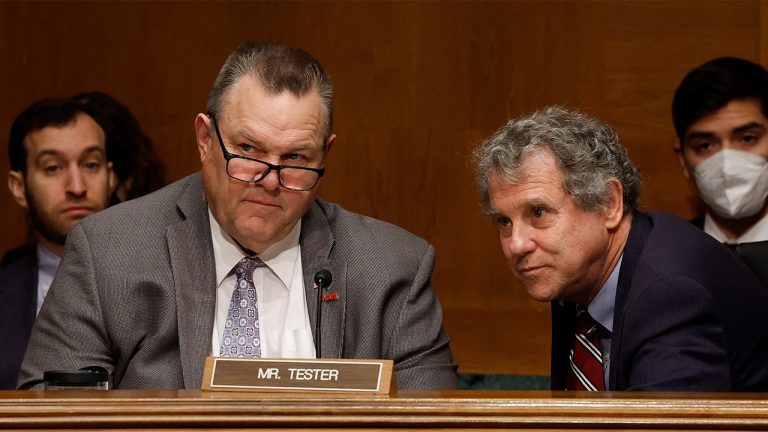Supreme Court rules in favor of fishermen in important case about government regulations.
The Supreme Court made a significant ruling in favor of a group of fishermen who challenged a long-standing legal doctrine that they believed gave too much power to the administrative state over their business. In a 6-2 decision where Justice Ketanji Brown Jackson did not participate, the majority of the court stated that the federal rule established by the National Oceanic and Atmospheric Administration (NOAA) mandating fishermen to pay $700 a day for an “at-sea monitor” exceeded the boundaries set by Congress for the federal agency.
In January, the justices heard arguments from two cases brought by New Jersey fishermen and herring fishermen from Rhode Island against NOAA’s rule, which they claimed could threaten their livelihoods. The court’s ruling overturned the Chevron doctrine, a legal theory from the 1980s that suggested courts should defer to an agency’s interpretation of the law if a federal regulation was challenged, as long as the interpretation was reasonable and Congress had not directly addressed the issue.
Chief Justice John Roberts, writing for the majority, stated that “Chevron is overruled” and emphasized the importance of courts exercising independent judgment to ensure agencies act within statutory authority. He asserted that Chevron was a judicial invention that required judges to neglect their statutory duties, and it was time to move past it.
Justice Clarence Thomas, in a separate concurrence, criticized Chevron deference for allowing the executive branch to wield powers not granted to it and undermining the separation of powers envisioned by the Founders. Justices Neil Gorsuch and Elena Kagan dissented from the majority, defending the importance of the Chevron rule in regulatory efforts over the years.
The set of cases was seen as a battle between East Coast fishermen and the federal government, with the fishermen arguing that the cost of at-sea monitors significantly affected their business. Jerry Leeman, CEO of the New England Fishermen’s Stewardship Association (NEFSA), applauded the decision and expressed gratitude to the fishermen who fought for their rights. Former U.S. Solicitor General Paul Clement, representing the fishermen, hailed the ruling for restoring the balance of powers as mandated by the Constitution.
Despite the dissenting opinions, the decision was seen as a victory for individuals looking to challenge the government in court and a step towards preventing overreach by governmental agencies. The ruling was praised for leveling the playing field and upholding citizens’ rights in the face of regulatory challenges.








